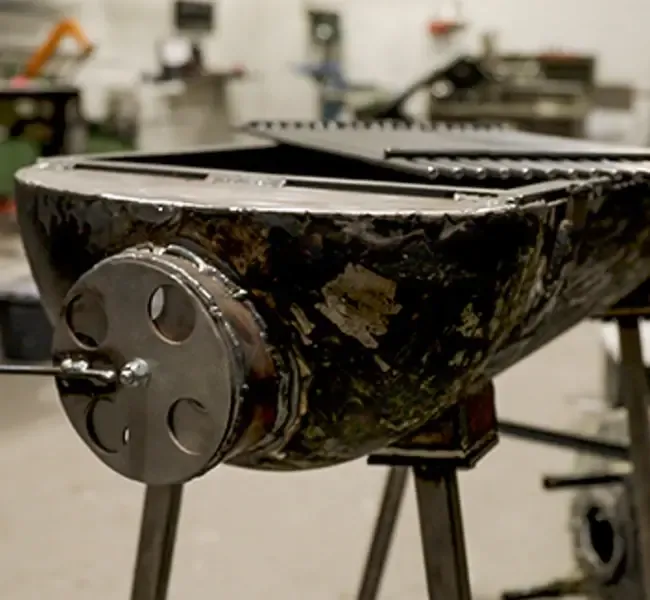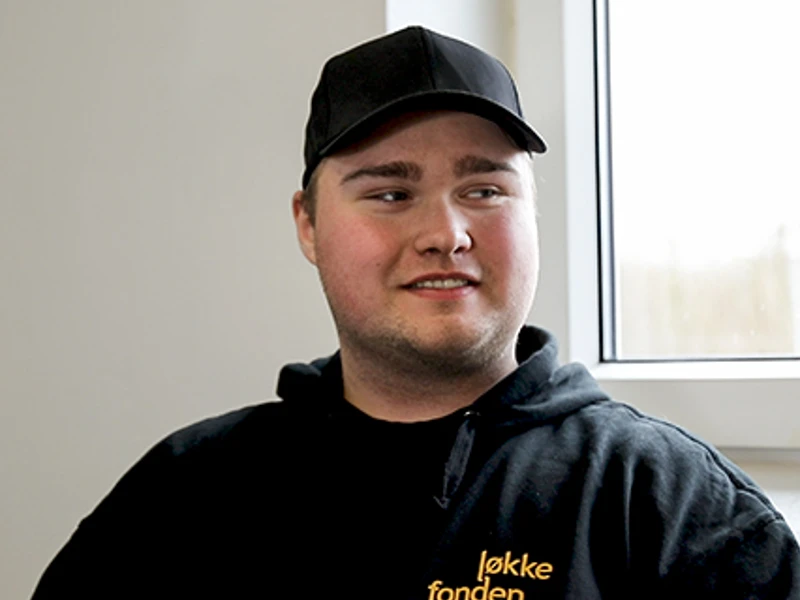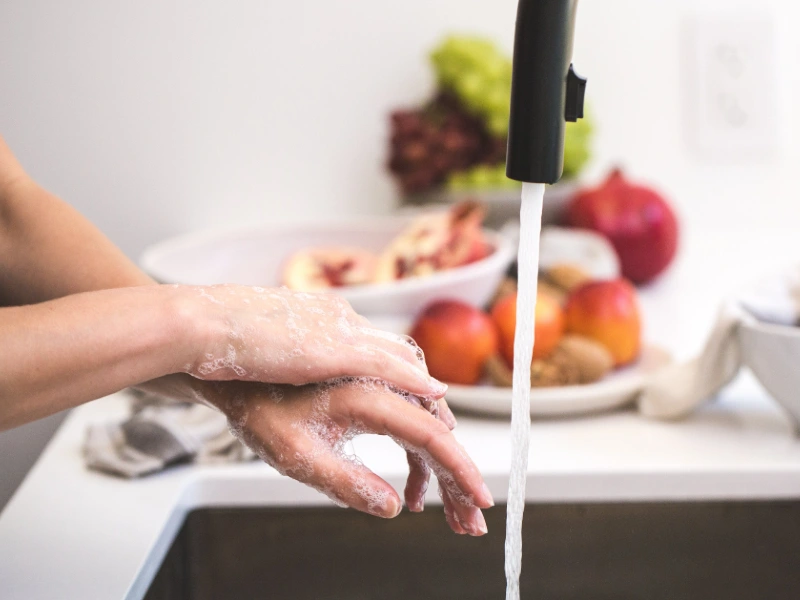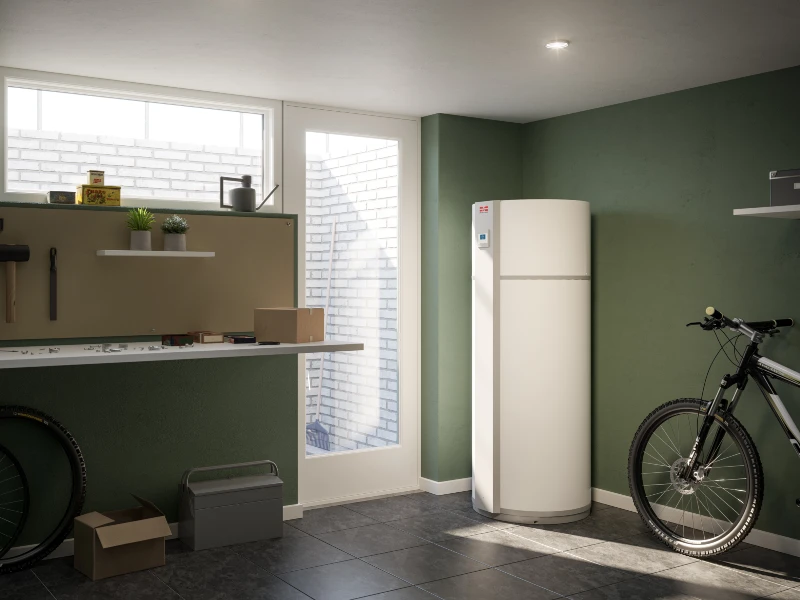Water heaters get a new lease of life at Søbæk Vocational College
At Søbæk Vocational College, young people can do trade tasks in the college’s dedicated workshops. We visited the smithy department and spoke to teacher Kenneth and student Johannes, who discovered how METRO THERM’s water heaters can be given a whole new lease of life
The Søbæk Therapy Centres were founded in 1985 and ever since offered specially organised school and education programmes for children and young people who, for various reasons, have not been able to be part of the regular school system. At the Søbæk Vocational College in Jyderup, the focus is specifically on young people aged 14+, who typically have either academic or social cognitive impairment, but are practically motivated. Søbæk Vocational College calls it smart hands and good minds.
Craftsmanship gives hope for the future
Watch the film about Søbæk Vocational College and how they use METRO THERM products in the smithy workshop.
We are welcomed by the school’s smithy teacher, Kenneth S. Pedersen.
Kenneth has worked at the vocational college for well over 20 years, helping young people rediscover the spark and belief in their future – a belief and spark that was absent during their time in the standard school system:
''We have young people who have been challenged throughout their schooling, who come here and for the first time ever in their lives feel that they are good at something and that they have abilities, even if they are not the best at reading, maths or writing.” Kenneth continues:
“If you’ve felt like you’ve never been good enough since you started school. You’ve always been a bit in the way in the classroom and then you come here and you actually feel like you become the focal point again, and you can see that when you do something – it works and you get something out of it.”
Kenneth explains how the practical programmes in the workshops help to give young people ownership of their own development and a sense of pride in actually creating something. And the young people’s experience of success also gives them faith and hope that they can actually look towards a real working life on the other side of school: “You’re doing something. It gives you this real sense of pride.
It gives me self-esteem and a belief that I’m good at something and that, hopefully, there will be a place for me when I get out into society.”
Motivated for maths
When young people join the welding department at Søbæk Vocational College, Kenneth always starts by familiarising them with basic iron work, and they are initially allowed to make small iron figures, such as small candlesticks, which they can take home with them. Over time, the bar is raised, and then all of a sudden young people are forced to use maths to do their work – something they have typically had bad experiences with at primary and secondary school:
”“They need to use the maths they know. It’s great for these young people, because they’ve all had an insanely hard time sitting in a classroom, but when you’re standing there building something, you’re forced to use your maths and do the sums and write them down. So, it helps them a lot on a daily basis. They can use it in all aspects of life as they move forward.”
%20S%C3%B8b%C3%A6k-1.webp)
From water heater to grill
Once the young people have learnt the basics of smithing and become comfortable with maths, Kenneth takes it up a notch. This is when the students start their apprenticeship test – Kenneth’s very own version of a Weber™ grill. However, the grill is not – as you might expect – made from bent iron sheets purchased for the purpose, but rather from discarded water heaters from METRO THERM.
Many years ago, a 110-litre water heater from METRO THERM needed to be replaced at the school, and that’s when Kenneth had a crazy idea: “Should we try to open it and see how broken it is and how rotten or rusty it is? And I was a little surprised because it actually looked really nice inside, once we peeled off the jacket and insulation, cut off the pipes and marked this container so we could cut it in half.” After opening it and scraping the 10 kilos of lime out of the container, Kenneth now had to figure out what it could actually be used for.
Until recently, Kenneth had been buying expensive sheet metal from DIY stores to make his grills, so when he had the 110-litre water heater in his hands, it quickly made sense that it could replace his expensive purchases: “We figured out that, instead of buying expensive sheet metal, we could build some angle iron frames and put them in these halved tanks and make it like a Weber™ grill where you could close it. And then we had to figure out a solution with pipes at the ends to get some fresh air in.”
Initially, the project was not a resounding success, as the job of properly sizing the air supply was easier said than done:
“Several versions were made because the first one we made didn’t work so well because it was a little undersized in relation to the air it could get. So, it’s also a process we’ve worked on over the years – how much air does it actually take to keep a fire going in a grill like that?”

Johannes er blevet sat på ”grill-svendeprøven”
One of the students at Søbæk Vocational College who has been put through Kenneth’s “grill apprenticeship test” is 20-year-old smithing trainee Johannes. Johannes has been at the school for two years, and after just six months he was given the task:
“Kenneth looked at me and asked me if I wanted to make that grill because I’d been talking about wanting one for a long time. So, I got to work on it. It’s been a great thing to work with it because when I look back at when I started and the welds I made, I can see that I’ve changed and become better at some things. So, I think it’s also kind of fun to see how you change and get better at things over time.”
Like the other young boys at Søbæk Vocational College, Johannes struggled to fit into the regular school system. Projects like creating a grill from scratch helped Johannes realise that it’s okay that he’s not good at academic subjects – he can do things with his hands instead: “After coming here, I realise that a book isn’t what I'm good at. But I’m good at working with my hands. And something like this out here, where I can use a lot of the energy I have and build fun things and get some pride out of it.”
For Johannes, one of the coolest things about the work process is when you finally finish the piece and can take it home and show it off. It gives you a sense of pride to be able to show your skills to your family: “I feel this pride when I come home with a finished project. Like there’s something I can really do. So, it’s very nice to be able to bring it home and show it off.”
Having been in the smithy department at Søbæk Vocational College for two years now, Johannes has no doubt about what he wants to do in the future:
“I’d like to be a smith in a flex-job. If that’s possible. And if it’s not, then I don’t really know what I’ll be.”
Would you like to hear more about Søbæk Vocational College’s work to create school and activity programmes for young people? Then you can read much more on their website.



